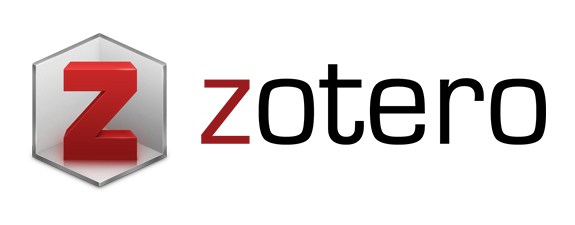Implementation Chatbot for SMEs Using Artificial Intelligence Markup Language to Improve Customer Integration and Business Performance
Abstract
Chatbots have been extensively adopted to produce more positive customer experiences as customers now spend more time in digital surroundings. Despite the technological advancement and benefits of chatbots for client service, exploration of chatbot operations for small and medium-sized enterprises (SMEs) is limited. The absence of exploration explaining the struggles faced by SMEs contributes to the gap in SMEs’ chatbot adoption. This exploration determines the features and rudiments that fit with SMEs’ characteristics and their guests' interactions with chatbots. A mixed-methods approach is used to understand SMEs’ needs. The first study uses interviews with SME business owners and their customers in order to explore the features that chatbots should offer for SME by identifying combinations between chatbots' generic features and SMEs' customer characteristics. The second study tests features identified in SMEs customers to empirically test featured chatbots’ influence on anthropomorphism, perceived enjoyment, perceived ease of use, perceived usefulness, and how they affect SMEs’ customer intentions to use chatbots and their shopping intentions. This paper contributes to the emerging service literature on the use of chatbots for service interactions, particularly for SMEs using Artificial Intelligence Markup Language. The data that has been obtained was analyzed using a Likert scale. As a result, the accuracy of using Artificial Intelligence Markup Language is 84.8%.
Keywords
Full Text:
PDFReferences
D. Castillo, A. I. Canhoto, E.Said, “The dark side of AI-powered servicei nteractions: exploring the process of co-destruction from the customer perspective,” Serv. Ind. J. vol. 2020, pp. 1–26, 2020.
X. Luo, S. Tong, Z. Fang, Z. Qu, “Frontiers: machines vs. humans: the impact of artificial intelligence chatbot disclosure on customer purchases,” Market. Sci., vol. 38, no. 6, pp. 937–947, 2019.
C. Liu, J. Jiang, C. Xiong, Y. Yang, J. Ye, “Towards building an intelligent chatbot for customer service: learning to respond at the appropriate time,” in Proceedings of the 26th ACM SIGKDD International Conference on Knowledge Discovery & Data Mining, 2020, pp. 3377–3385.
C. L. M. Marinchak, E. Forrest, B. Hoanca, “The impact of artificial intelligence and virtual personal assistants on marketing,” in Encyclopedia of Information Science and Technology, fourth ed., 2018, pp. 5748–5756 (IGI global).
M. Chung, E. Ko, H. Joung, S. J. Kim, “Chatbot e-service and customer satisfaction regarding luxury brands,” J. Bus. Res., vol. 117, pp. 587–595, 2018.
E. B. Hansen, B. Simon, “Artificial intelligence and internet of things in small and medium-sized enterprises: a survey,” J. Manuf. Syst., vol. 58 (Part B), pp. 362–372, 2021.
J. Wirtz, P. G. Patterson, W. H. Kunz, T. Gruber, V. N. Lu, S. Paluch, A. Martins, “Brave new world: service robots in the frontline,” J. Serv. Manag., vol. 29, no. 5, pp. 907–931, 2018.
M. Lombardi, F. Pascale, D. Santaniello, “An application for cultural heritage using a chatbot,” in 2nd International Conference on Computer Applications & Information Security (ICCAIS), pp. 1–5, 2019.
G. Murtarelli, A. Gregory, S. Romenti, “A conversation-based perspective for shaping ethical human–machine interactions: the particular challenge of chatbots,” J. Bus. Res., vol. 129, pp. 927–935, 2021.
E. Pantano, G. Pizzi, “Forecasting artificial intelligence on online customer assistance: evidence from chatbot patents analysis,” J. Retailing Consum. Serv., vol. 55, pp. 1-9, Mar. 2020.
K. Sidaoui, M. Jaakkola, J. Burton, “AI feel you: Customer experience assessment via chatbot interviews,” J. Serv. Manag., vol. 31, no. 4, pp. 745–766, 2020.
S. Haq, B. Waspodo, Nuryasin, “Chatbot: Reservasi restoran online pada facebook Messanger,” Applied Information System and Manajement (AISM), vol. 4, no. 1, pp. 23-30, 2021.
M. A. Selamat and N. A. Windasari, “Chatbot for SMEs: Integrating customer and business owner perspectives,” Technol. Soc., vol. 66, p. 101685, 2021.
C. Bălan, “Chatbots and Voice Assistants: Digital Transformers of the Company–Customer Interface—A Systematic Review of the Business Research Literature,” J. Theor. Appl. Electron. Commer. Res., vol. 18, no. 2, pp. 995–1019, 2023.
A. Heryandi, “Developing chatbot for academic record monitoring in higher education institution,” in IOP Conference Series: Materials Science and Engineering, 2020, vol. 879, no. 1, p. 12049.
S. A. Abdul-Kader and J. C. Woods, “Survey on chatbot design techniques in speech conversation systems,” Int. J. Adv. Comput. Sci. Appl., vol. 6, no. 7, 2015.
J. Cahn, “CHATBOT: Architecture, design, & development,” Univ. Pennsylvania Sch. Eng. Appl. Sci. Dep. Comput. Inf. Sci., 2017
A. F. Lokman, “A malay chatterbot,” Univ. Teknoiogi PETRONAS, 2005.
J. Božić, “Ontology-based metamorphic testing for chatbots,” Softw. Qual. J., vol. 30, no. 1, pp. 227–251, 2022.
M. Idhom, A. Fauzi, R. Alit, and H. E. Wahanani, “Implementation System Telegram Bot for Monitoring Linux Server,” in International Conference on Science and Technology (ICST 2018), 2018, pp. 1089–1093.
DOI: https://doi.org/10.15408/aism.v6i2.31847
Refbacks
- There are currently no refbacks.

This work is licensed under a Creative Commons Attribution-ShareAlike 4.0 International License.
EDITORIAL ADDRESS:
Department of Information Systems, Faculty of Science and Technology,
Universitas Islam Negeri (UIN) Syarif Hidayatullah Jakarta
Faculty of Science and Technology Building, 3rd Floor, 1st Campus, Universitas Islam Negeri (UIN) Syarif Hidayatullah Jakarta
Jl. Ir. H. Juanda No. 95, Ciputat Timur, Kota Tangerang Selatan, Banten 15412, Indonesia.
Tlp/Fax: +622174019 25/+62217493315.
E-mail: aism.journal@apps.uinjkt.ac.id, Website: https://journal.uinjkt.ac.id/index.php/aism

This work is licensed under a Creative Commons Attribution-ShareAlike 4.0 International License.
Applied Information System and Management (AISM) | E-ISSN: 2621-254 | P-ISSN: 2621-2536
https://journal.uinjkt.ac.id/index.php/aism







